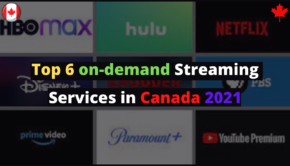No, Netflix’s Connection Throttling Isn’t A Net Neutrality Issue – But You Should Still Care
There’s been a lot of talk recently about net neutrality – the battle for a free and open web has been at the fore of everyone’s minds. And really, why shouldn’t it be? The notion that all data on the Internet should receive the same treatment is not only fair and reasonable, it’s necessary if the Internet is to continue existing as a source of information and communication.
Don’t tell that to telecom providers, though. They fought tooth-and-nail over the net neutrality laws recently instituted by FCC Chairman Tom Wheeler, claiming everything from reduced innovation and investment to overuse of bandwidth. Unfortunately, all their struggles were for naught, and Wheeler ultimately had the last laugh.
“Critics howled that the rules would be devastating for network investment – that broadband deployment would screech to a halt,” Wheeler told The Register in a recent interview. “[But] the whole argument that we could have either Open Internet protections or robust network investment was – and remains – a false choice. We can, and do, have both an Open Internet and continued investment in bigger and better broadband. We can have an Open Internet and light-touch regulation that encourages innovation and consumer choice.”

Image credits: https://www.flickr.com/photos/136722151@N07/23355741395
So how does Netflix play into all of this?
Well, in March it was revealed that Netflix’s video streams on AT&T and Verizon were capped at 600 kbps. In layman’s terms, they were delivered at a resolution of only 360p – pretty low-quality, in other words. Naturally, the FCC was none too pleased about this…until it was revealed that Netflix was the one responsible for the throttling.
Turns out, Netflix applies a default bitrate across most mobile carriers worldwide, and has been doing so for more than five years. The reason? To keep users below their data caps, and help them avoid hefty, exorbitant overage fees.
“We believe restrictive data caps are bad for consumers and the Internet in general, creating a dilemma for those who increasingly rely on their mobile devices for entertainment, work and more,” reads a blog post by Netflix’s Anne Marie Squeo. “So in an effort to protect our members from overage charges when they exceed mobile data caps, our default bitrate for viewing over mobile networks has been capped globally at 600 kilobits per second. It’s about striking a balance that ensures a good streaming experience while avoiding unplanned fines from mobile providers.”
Not surprisingly, this throttling led many to call for the FCC to launch an investigation into Netflix. After all, isn’t Netflix directly violating the same Net Neutrality laws it so tirelessly championed? The answer to that…actually isn’t a simple one.
For one, the Net Neutrality legislation is meant to apply expressly to situations where Internet Service Providers might give favorable treatment to one website or company over another. So Comcast blocking subscriber traffic and slowing P2P downloads? A definite violation.
The difference between the two (in addition to Netflix being what the FCC refers to as an “edge provider”) is that Netflix’s actions are arguably pro-consumer. They’re trying to save people money. As for Comcast…well, there’s really no justification for half the stuff they do.
Netflix’s decision to throttle mobile connections does shed light on an issue entirely independent from net neutrality, however(and here comes the part where you should care): mobile carrier fees. It’s long been known that major carriers have a tendency to gouge their customers with unreasonable contracts and hidden fees – and this hasn’t escaped the notice of regulatory agencies.
It may well be that in the near future, Netflix’s revelation may lend fuel to agencies seeking to lower mobile costs.
Of course, there’s another reason all this matters, too – the fact that in addition to throttling its connections, Netflix has entered into deals with providers like T-Mobile for unlimited bandwidth. Not only does this give opponents of net neutrality ammunition against net neutrality, it uncovers several troubling holes in the current legislation.
And those holes could easily be abused by an organization that’s less concerned with protecting consumer interests.
About the author:
Amy Medeiros is the Marketing Manager at BroadbandSearch.net.















